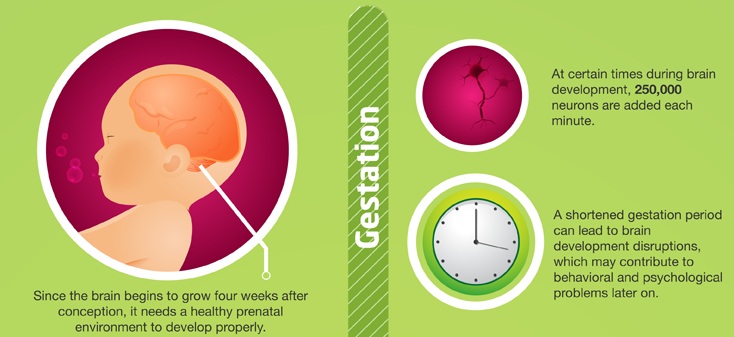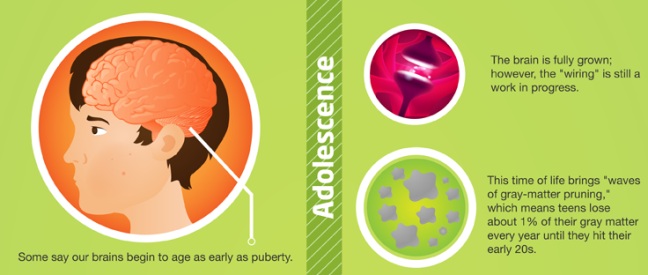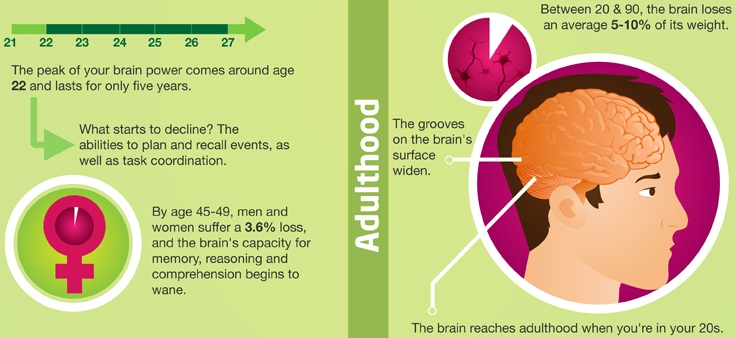
Gestation
The brain begins to grow four weeks after conception. At certain times during brain development, 250,000 neurons are added each minute.
A shortened gestation period can lead to brain development disruptions, which may contribute to behavioral and psychological problems later on.

Childhood
By age 6, a brain is 96% of its adult weight.
The brain produces twice the number of neurons it well need, and only those that are reinforced with use will remain. At this point in time, the brain is as energetic and flexible as it will be.

Adolescence
The brain is fully grown; however, the "wiring" is still a work in progress.
This time of life brings "waves of gray-matter pruning," which means teens lose 1% of their gray matter every year until they hit their early 20s.

Adulthood
The brain reaches adulthood when you are in your 20s.
- The grooves on the brain's surface widen.
- Between 20 & 90, the brain loses an average 5-10% of its weight.
- The peak of your brain power comes around age 22 and lasts for only five years. The abilities to plan and recall events, as well as task coordination start to decline after that.
- By age 45-49, men and women suffer a 3.6% loss, and the brain's capacity for memory, reasoning and comprehension begins to wane.

Old Age
- By age 80, our brains have lost a little weight and have shrunk by a few ounces; most of the weight loss is water.
- The shrinkage of the brain usually leads to worsened cognitive abilities, including inductive reasoning, spacial orientation and verbal memory . When the hippocampus begins to shrink, there's a loss of orientation and wandering, which many elderly people experience.
- At this point we are steadily losing brain cells. Decayed portions of dentricles that extend from neurons increase.
- By age 65-70, men will suffer a loss of 9.6%, and women will suffer a 7.4% loss.
- Our brains essentially dry out as we age. Drinking more water will not help prevent that and living in dry climate wont increase the amount your brain shrinks.
- Its not all bad. Emotional responses can be kept under control thanks to the amygdala interacting more with a section of brain that control emotions.

Factors That May Impact Brain Aging
- Education, Constantly learn and keep your brain active
- Exercise, Walk rapidly for 45 minutes three time a week.
- Rest, Sleeping eight hours a night may help prevent memory loss.
- General Health, Eat a balanced diet, don't smoke and maintain healthy blood pressure and cholesterol levels.
- Hypertension, Speeds up normal brain shrinkage and loss of mental abilities
- Stress, Leads to the release of a hormone that in large amounts wears away the neurons in the hippocampus.
Sources: newscientist.com, mccku.edu, psycologytoday.com, dailymail.co.uk, martinfrost.edu, usc.edu

























Comments